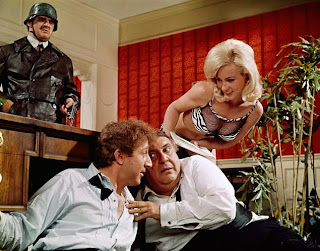Another article I wrote and that might be of some help for aspiring game developers:
Just lately this noob has been promoted to an Associate Producer (yay!). After nine months on the job, doing my best to coordinate the production tasks I think I can fairly certainly say... Damn, I still don't really know what being a producer really is all about. Therefore, I am putting "part 1" in the title, but part 2 won't follow straight after it. I will probably write part 2 in a year or two, just to revise and maybe contradict the statements I will make today.
So many producers...
If you look at all the "kinds" of producers, you can find out such names as Producer, Executive Producer, Junior Producer, Associate Producer, Senior Producer, or even such weird thingies as Art Producer, Design Producer or Technical Producer. What is the difference between them? In many cases, it strongly depends on the company, but generally speaking, the main difference is the level of competencies and responsibilities. The core concept of the job stays the same whether you are a Junior Producer or Executive Producer. The only real difference is the number of decissions you will be expected to make and broadness of topics you will have to cover.
A producer in gamedev is kinda like a manager
In this case it means that he's as much everyone's boss as he is everyone's bitch. From all the info I've gathered so far, his role varies greatly throughout the life of the project. Producer needs to know what everyone in the project is doing and why. He manages the priorities of the tasks and is responsible for achieving the milestones within planned deadlines and budget. This part is almost like any other project management in any given company. On the other hand, however, producer can often be the guy that does things others don't have time to do. It can be anything from covering for a sick animator at a motion capture session, through attending meetings that just popped out, running the team's Twitter, helping with the game's slogan or logotype, to all the things people in the trenches don't have time to do while crunching: ordering lunch, helping QA check out the latest build or the most basic and tedious jobs, like renaming files, creating backups or watching the progress bar of the compiling build as the programmer gets his 15 minutes of rest. It is also quite safe to say that if there is a task where nobody knows whose responsibility it is, it is most probably producer's.
Continue reading on Games Making Noob Blog...










